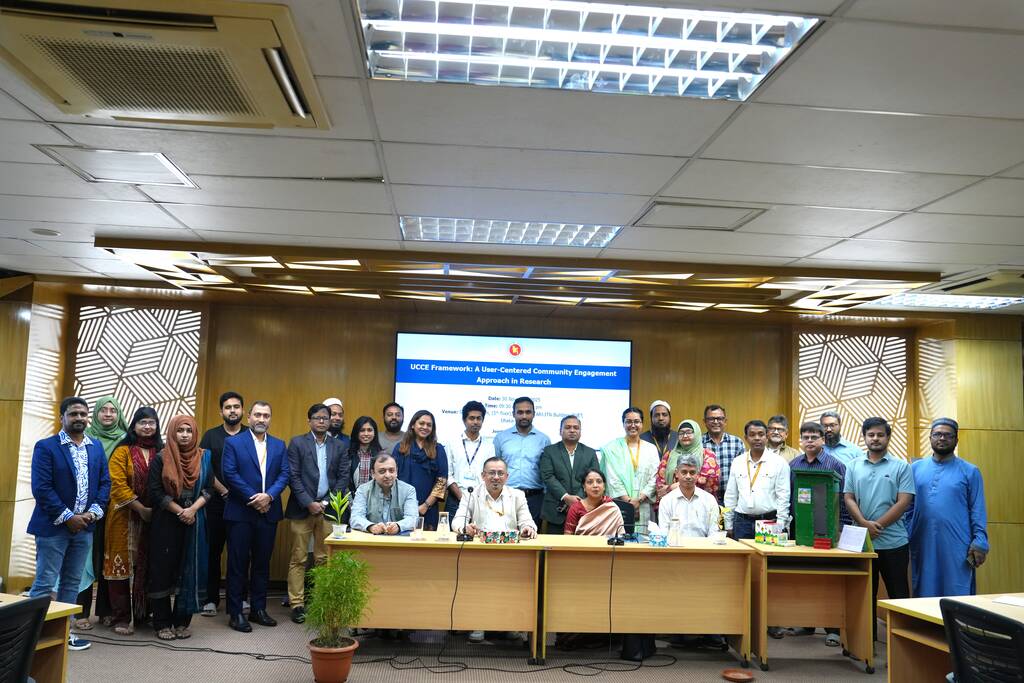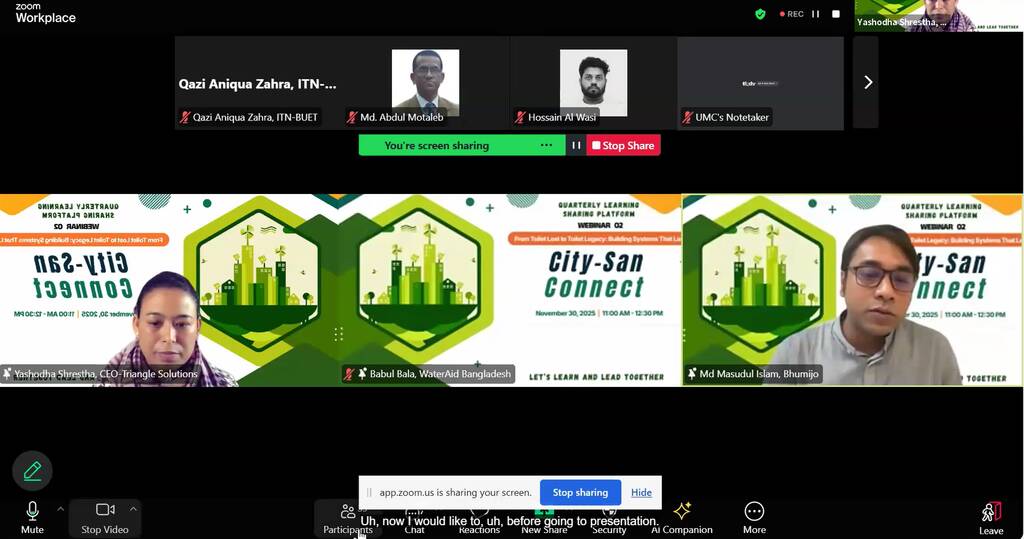Bangladesh FSM Network organised its 6th Convention in Dhaka at the Institute of Architects Bangladesh on 3rd March 2024. The focus was ensuring sanitation worker safety and dignity, improving work conditions, exploring financing options, and advancing the CWIS model for SDG target 6.2.
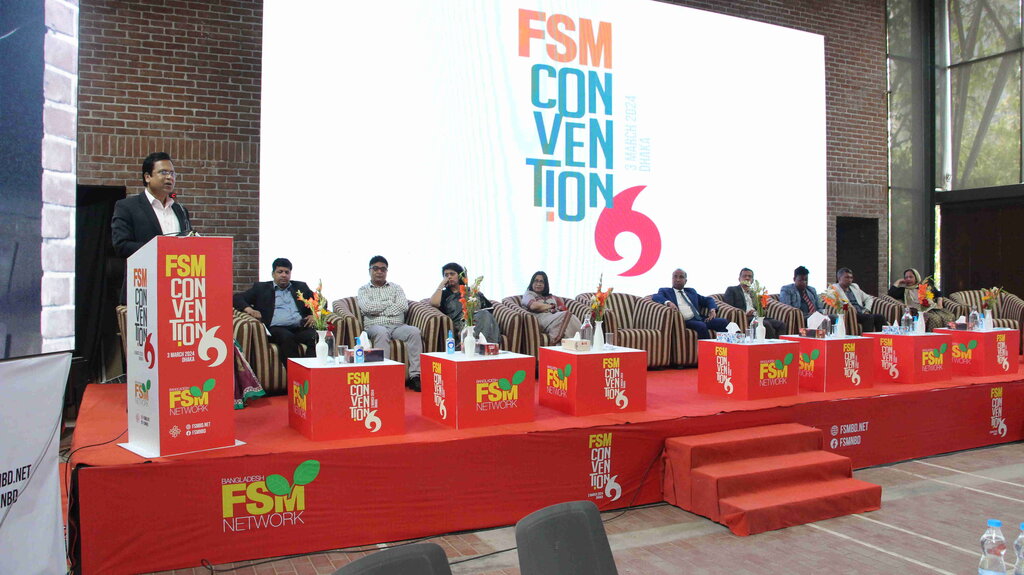
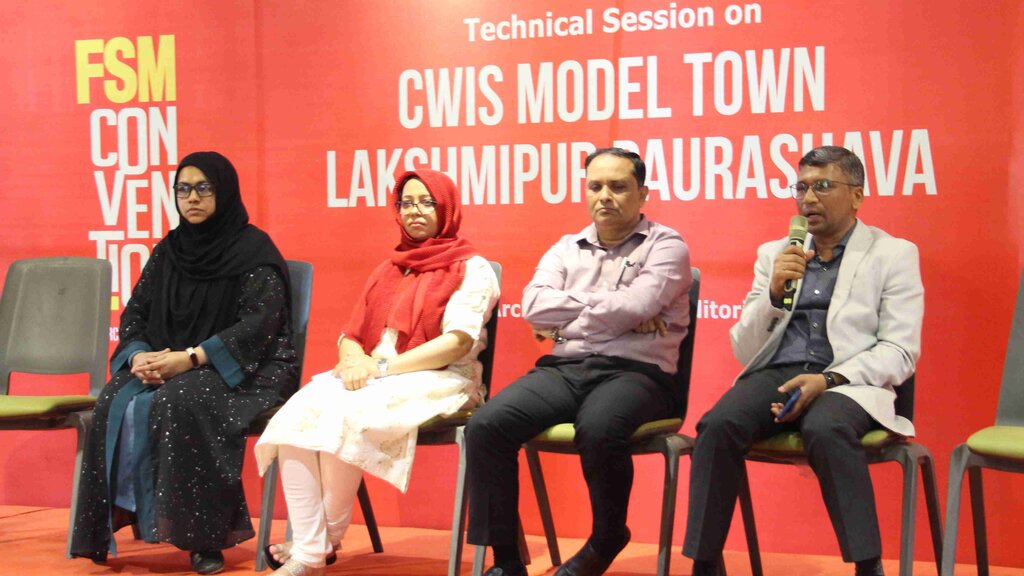
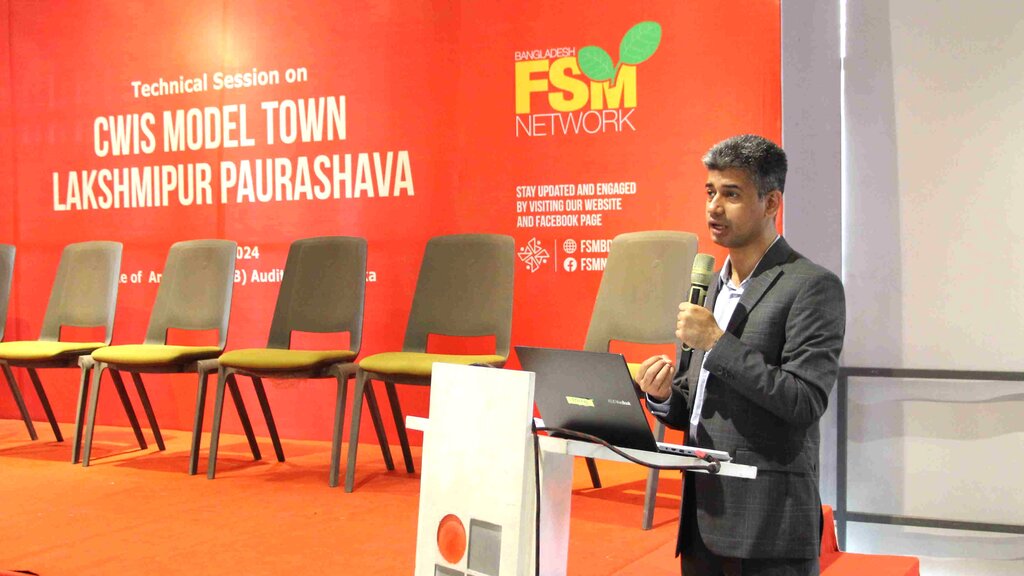
The convention brought together sanitation sector stakeholders, including the Ministry of Local Government, Rural Development and Cooperatives (MoLGRD&C); Ministry of Labour and Employment (MoLE); Bangladesh Bank; Department of Public Health Engineering (DPHE); Insurance Development and Regulatory Authority (IDRA); Municipal Association of Bangladesh (MAB); National Faecal Sludge and Septage Management (NFSSM) Alliance India, and Citywide Inclusive Sanitation Alliance Nepal (CWISAN).
Chief Guest of the event, Mr. Md. Sarwar Hossain, Chief Engineer of DPHE, emphasised the need for safely managed sanitation to meet the SDG target by 2030. He highlighted the prevalent discharge of faecal sludge into drains by households. Mr Hossain called for a change in people’s behaviour and urged NGOs to actively support the government in driving this transformation.
At the heart of the convention was ITN-BUET’s active involvement, particularly in the parallel session titled ‘Lakshmipur CWIS Model Town Plan and Progress.’ The session featured presentations by sanitation sector experts, including Paura Nirbahi Officer of Lakshmipur Municipality, Mr. Alauddin Ahmed, presenting the ‘CWIS Action Plan’; Deputy Project Director of LLF 10 Town Project, Ms. Dilruba Farzana, discussing the ‘FSM Scenario, project Interventions, Challenges, and Way Forward’; and Project Director and Co-Chair of CWIS FSM Support Cell, DPHE, Mr. Shafiqul Hassan presenting on the ‘Support and Interventions by CWIS Partners.’ Ms. Tazrina Habib Ananya, Knowledge Management Specialist of ITN-BUET, also presented the ongoing and planned activities of ITN-BUET for Lakshmipur.
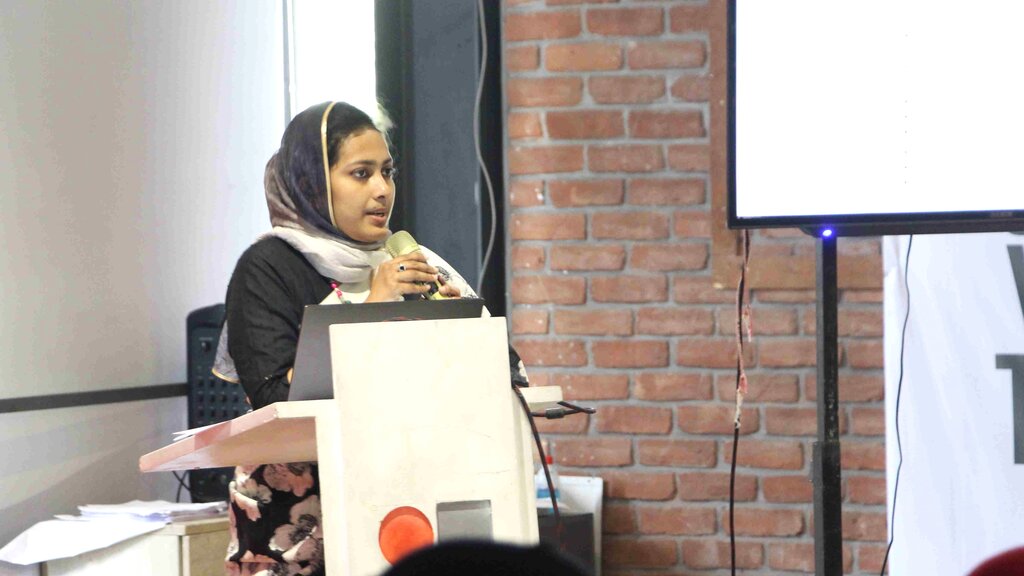
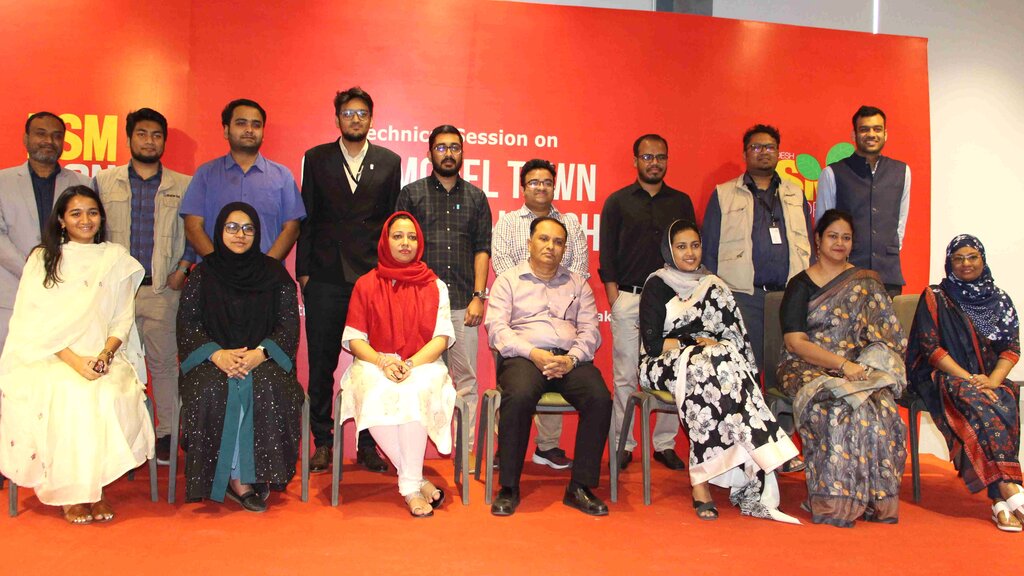
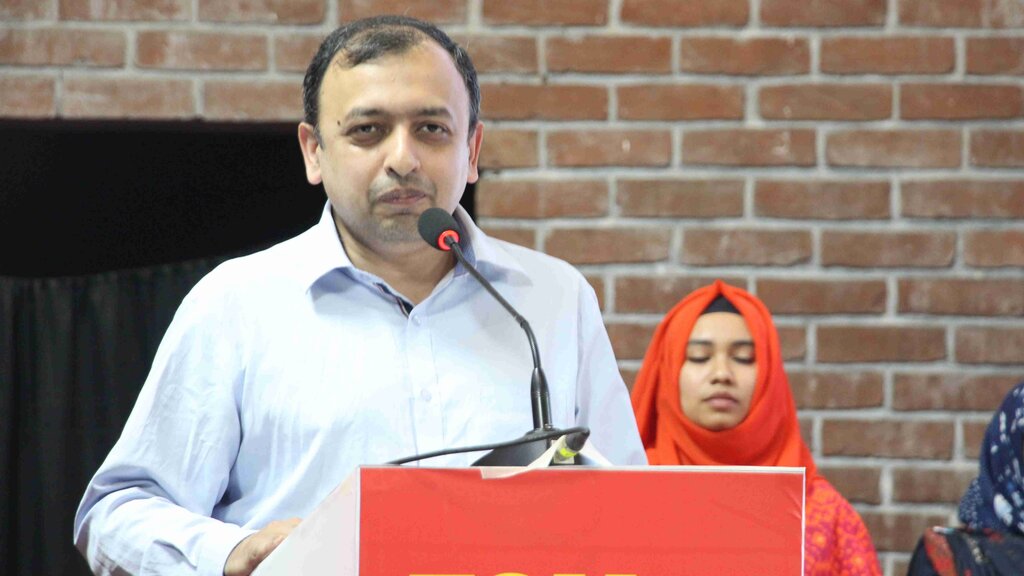
Following this, a Panel Discussion and Q&A session took place, where Mr. S. M. Shamim Ahmed, Project Director of LLF 10 Town Project, DPHE, and Ms. Shajia Sultana, Project Management Specialist from the Islamic Development Bank Bangladesh, joined the presenters. The panellists addressed numerous inquiries on sanitation issues raised by the attendees. Mr. Shafiqul Hassan concluded that integrated development is achievable only through the effective implementation of CWIS outcomes and functions, involving active engagement from all stakeholders.
At the event, Prof. Dr. Tanvir Ahmed, Director of ITN-BUET, expressed, “The convention aims to safeguard the dignity and enhance the livelihoods opportunities of sanitation workers. Even with a well-functioning sanitation service chain, achieving SDG 6.2 is impossible without ensuring the protection of sanitation workers.”
Major General (Retd) Md. Salah Uddin Miyaji MP, the special guest in the closing session, emphasised the importance of ensuring sanitation workers’ safety, security, and welfare. He also stressed the need for effective policies and their implementation to manage waste in the country, advocating for converting waste into resources to ensure a sustainable environment for future generations.
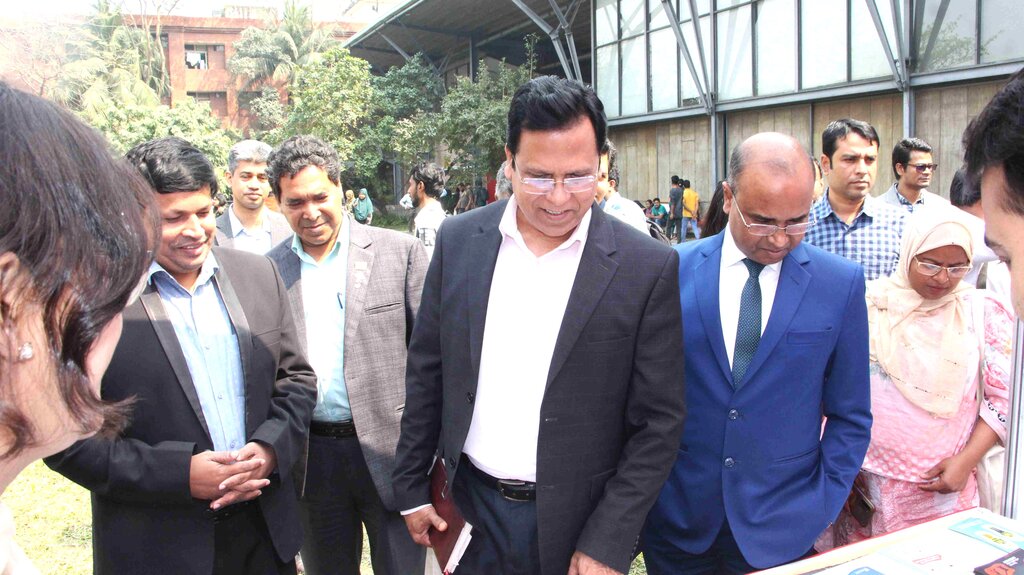
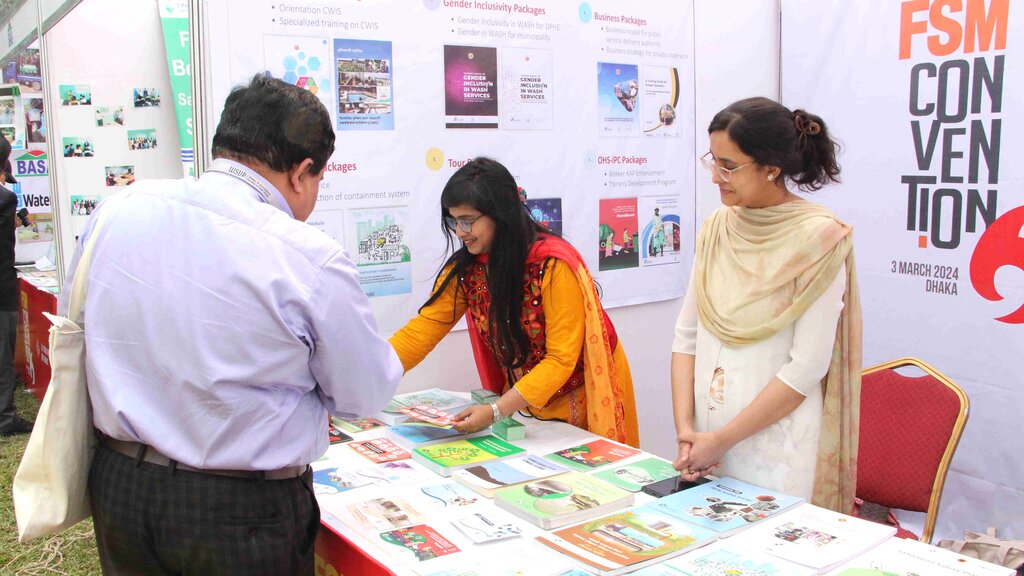
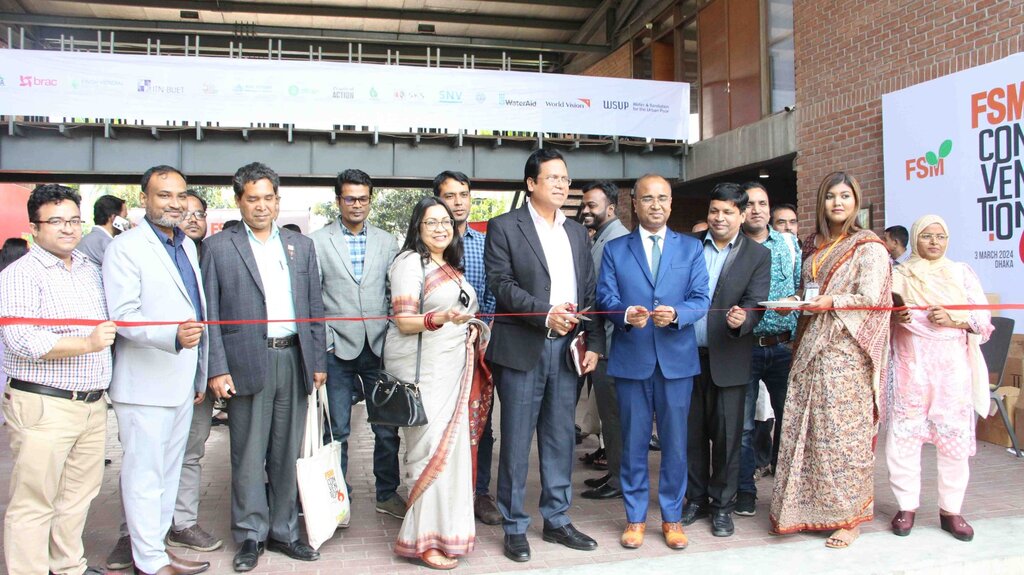
Approximately 300 participants from diverse sectors attended the event, including local government institutes, I/NGOs, practitioners, private companies, development partners, and sanitation workers. Ms. Meghna Malhotra and Mr. Dhruv Mitter from India, and Mr. Jagam Shrestha and Mr. Pashe Tamang from Nepal also contributed valuable insights, enhancing the convention’s discussions and learnings on regional FSM practices. ITN-BUET facilitated the participation of CWISAN in the convention.
The FSM Network is a collaborative platform, uniting diverse stakeholders, including government agencies, I/NGOs, academia, and private sector entities. ITN-BUET, being the founding member of this network, showcased its prominent publications on water and sanitation at an exhibition stall during the convention.



